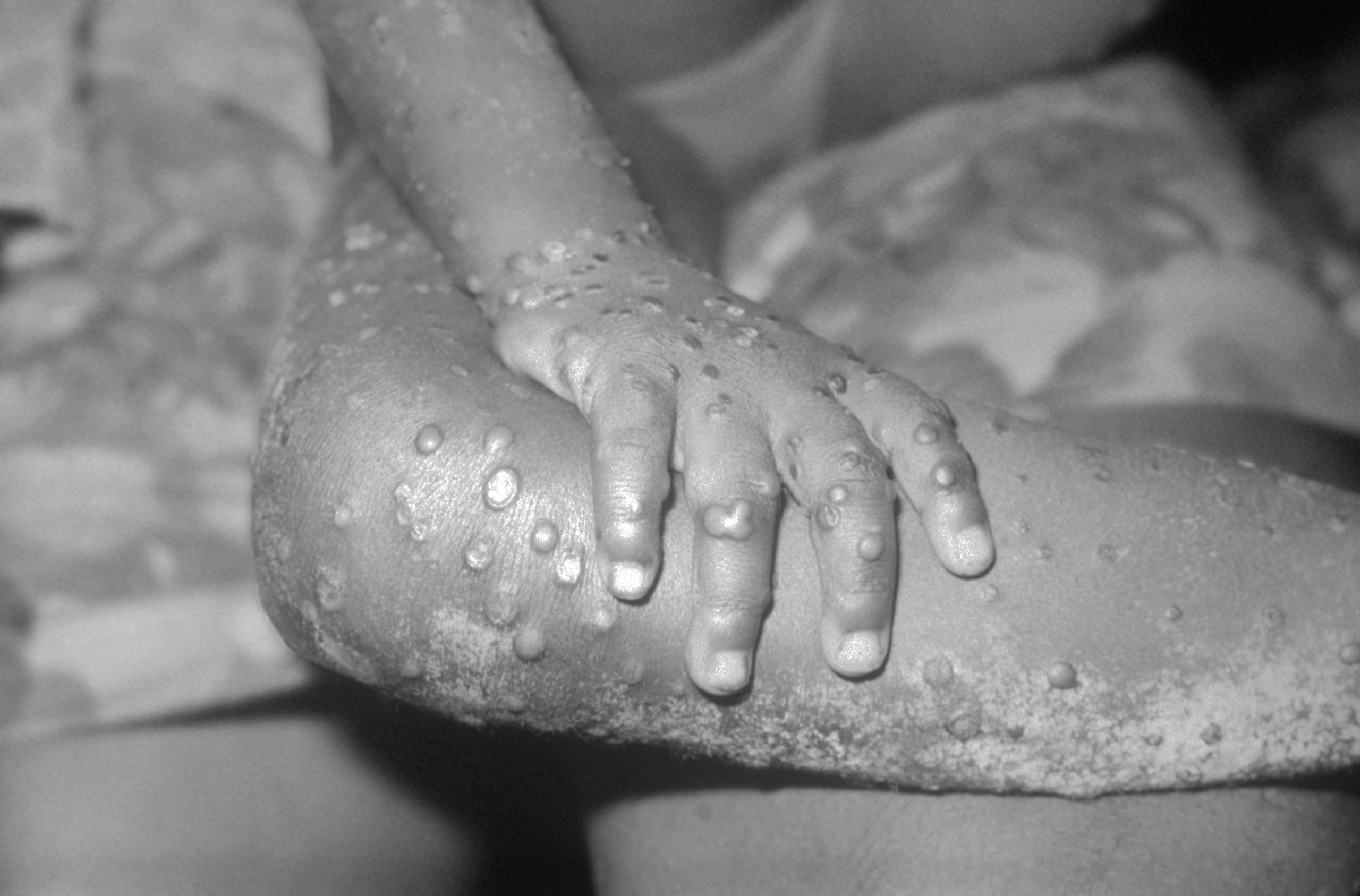WORLD NEWS FLASH

WORLD
In the wake of reports of racist and stigmatizing language surrounding the name of Monkeypox, the disease will be referred to as “mpox” going forward, the World Health Organization (WHO) said on Nov 28. The decision follows a series of consultations with global experts. Both terms will be used simultaneously for a year before the monkeypox name is phased out.
“This serves to mitigate the concerns raised by experts about confusion caused by a name change in the midst of a global outbreak,” the UN agency said in a statement.
Mpox is a rare viral disease that primarily occurs in tropical rainforest areas of Central and West Africa, but outbreaks emerged in other parts of the world this year. There have more than 80,000 cases, and 55 deaths, with 110 countries affected.
When the current outbreak expanded, WHO both observed and received reports of racist and stigmatizing language online, in other settings and in some communities.
“In several meetings, public and private, a number of individuals and countries raised concerns and asked WHO to propose a way forward to change the name,” the agency said.
The monkeypox name was given in 1970, some 12 years after the virus that causes the disease was discovered in captive monkeys. This was before WHO first published best practices on naming diseases in 2015.
These guidelines recommend that new disease names should aim to minimize unnecessary negative impacts on trade, travel, tourism or animal welfare. They should also avoid offending any cultural, social, national, regional, professional or ethnic groups.
WHO assigns names to new and, very exceptionally, existing diseases, through a consultative process. Medical and scientific experts, representatives from government authorities from 45 countries, as well as the general public, were invited to submit their suggestions.
Based on the consultations, and further discussions with WHO Director-General Tedros Adhanom Ghebreyesus, the agency has recommended adoption of the mpox synonym.
Considerations included rationale, scientific appropriateness, extent of current usage, pronounceability, usability in different languages, absence of geographical or zoological references, and the ease of retrieval of historical scientific information.
WHO will adopt the term mpox in its communications, and encourages others to follow suit.
UNITED STATES
HOPE FOR JACKSON, MISSISSIPPI RESIDENTS
On Nov. 29, the United States filed a proposal in federal court that – if approved by the court – would appoint an Interim Third Party Manager to stabilize the city of Jackson, Mississippi’s public drinking water system, and build confidence in the system’s ability to supply safe drinking water to the system’s customers.
The city and the Mississippi State Department of Health (MSDH) have signed this order and agreed to its terms. At the same time, the Justice Department, on behalf of U.S. Environmental Protection Agency (EPA), filed a complaint against the city alleging that the city has failed to provide drinking water that is reliably compliant with the Safe Drinking Water Act (SDWA) to the system’s customers.
The proposal, which was called a “proposed stipulated order” in court filings, is meant to serve as an interim measure while the United States, the city, and MSDH attempt to negotiate a judicially enforceable consent decree to achieve long-term sustainability of the system and the city’s compliance with the SDWA and other relevant laws.
“Today the Justice Department is taking action in federal court to address long-standing failures in the city of Jackson’s public drinking water system,” said Attorney General Merrick B. Garland. “The Department of Justice takes seriously its responsibility to keep the American people safe and to protect their civil rights. Together with our partners at EPA, we will continue to seek justice for the residents of Jackson, Mississippi. And we will continue to prioritize cases in the communities most burdened by environmental harm.”
“Every American – regardless of where they live, their income, or the color of their skin – deserves access to safe, reliable drinking water,” said Assistant Attorney General Todd Kim of the Justice Department’s Environment and Natural Resources Division. “For many years now, the people of Jackson have lived in uncertainty – uncertainty about whether, on any given day, the water that flows from their taps will be safe to drink. With our court filings today, we have taken an important step towards finally giving the people of Jackson the relief they so desperately deserve.”
The proposal seeks the court’s appointment of an Interim Third Party Manager that would have the authority to, among other things:
- Operate and maintain the city’s public drinking water system in compliance with SDWA, the Mississippi Safe Drinking Water Act, and related regulations;
- Take charge of the Water Sewer Business Administration, the arm of the city responsible for billing water users;
- Implement capital improvements to the city’s public drinking water system, in particular, a set of priority projects meant to improve the system’s near-term stability, including a winterization project meant to make the system less vulnerable to winter storms; and
- Correct conditions within the city’s public drinking water system that present, or may present, an imminent and substantial endangerment to the health of the city’s residents.
This court filing marks the latest efforts to address Jackson’s drinking water crisis, but there is much work still to be done to solve the myriad problems plaguing Jackson’s public drinking water system.
On July 29, MSDH issued a boil-water notice for Jackson’s public drinking water system. The next month, the city proclaimed an emergency after excessive rainfall and extreme flooding prevented the system from delivering any water to the approximately 160,000 persons living within the city and in certain areas of nearby Hinds County who rely on the system. That meant that many of those residents had no running water to drink, or to use for basic hygiene and safety purposes like washing hands, showering, flushing toilets, fighting fires, or washing dishes.
The water pressure was not restored until Sept. 6, and the boil-water notice remained in effect until Sept. 15.
EUROPE
A QUEST FOR ENERGY INDEPENDENCE
UK Business and Energy Secretary Grant Shapps has launched a landmark package to invest now to help secure Britain’s energy independence.
Today the government is driving forward plans to build a secure energy future, creating cheaper, cleaner energy from British sources, for Britain. This includes continuing the revitalization of the UK nuclear industry by confirming the first state backing of a nuclear project in over 30 years, part of the UK’s biggest step yet in the journey to energy freedom.
The government’s historic £700 million stake in Sizewell C is positioned at the heart of the new blueprint to Britain’s energy sovereignty, as plans to develop the new plant are approved today. This is expected to create 10,000 highly skilled jobs and provide reliable, low-carbon, power to the equivalent of 6 million homes for over 50 years.
The Nov. 28 approval comes alongside the government’s continued commitment to develop a pipeline of new nuclear projects, beyond Sizewell C. To support this, the UK is working at pace to set up Great British Nuclear, the vehicle tasked with developing a resilient pipeline of new nuclear builds, with an announcement expected early in the new year.
An Energy Bill, which is being driven forward in Parliament, is considered the driving force that will power up this long-term plan, forming part of a once in a generation plan to put in place powers to shield Britain from global forces and secure energy for future generations.
It comes as the UK sets a new ambition to reduce energy demand by 15% by 2030. This is backed by a new £1 billion ECO+ insulation scheme, and a major expansion to the government’s public awareness campaign – all of which will help households cut back on energy waste and deliver warmer homes and buildings and cheaper energy bills.
Business and Energy Secretary Grant Shapps said, “Global gas prices are at record highs, caused by Putin’s illegal march on Ukraine. We need more clean, affordable power generated within our borders – British energy for British homes.
“Today’s historic deal giving government backing to Sizewell C’s development is crucial to this, moving us towards greater energy independence and away from the risks that a reliance on volatile global energy markets for our supply comes with.
“This is at the heart of a package of measures that – together with the new Great British Nuclear and powers of the Energy Security Bill – will ensure secure supply for now, and for generations to come.”
AFRICA
FIGHTING CYBERCRIME
Law enforcement officials from 27 INTERPOL countries joined forces in the Africa Cyber Surge Operation to counter cybercrime across the continent.
Against the backdrop of the huge financial losses suffered by companies, businesses and individuals, the four-month operation (July to November 2022) saw officers detect, investigate and disrupt cybercrime through coordinated law enforcement activities utilizing INTERPOL platforms, tools and channels, in close cooperation with AFRIPOL.
Coordinated from an INTERPOL Command Centre in Kigali, Rwanda, the operation focused on removing the enablers of cybercrime.
Among the operational highlights:
- 11 individuals were arrested, with one suspect linked to the abuse of children, and 10 others linked to scam and fraud activities worth USD 800,000 which had an impact on victims globally.
- Authorities in Eritrea took down a Darknet Market that was selling hacking tools and cybercrime-as-a-service components.
- Multiple cryptocurrency scam cases were resolved in Cameroon, including one with an estimated financial impact upon the victim of more than CFA 8 million.
- Tanzania recovered more than USD 150,000 of victims’ money from data infringement and copyright cases.
- Action was taken against more than 200,000 pieces of malicious cyber infrastructure which facilitate cybercrime across the African Region. This included the takedown and clean-up of malicious infrastructure linked to botnet activity, and the dissemination of mass phishing, spam and online extortion activities (e.g. romance scams, banking scams and theft of data) to potential victims.
Participating countries were able to improve their own national cyber security by patching network vulnerabilities and cleaning-up defaced government websites and securing vulnerable critical infrastructure, thereby reducing the risk of potentially catastrophic attacks.
Investigations were shaped by intelligence provided by INTERPOL’s private sector partners including British Telecom, Cyber Defense Institute, Fortinet’s FortiGuard Labs, Group-IB, Kaspersky, Unit 42-Palo Alto Networks, Shadowserver and Trend Micro.


